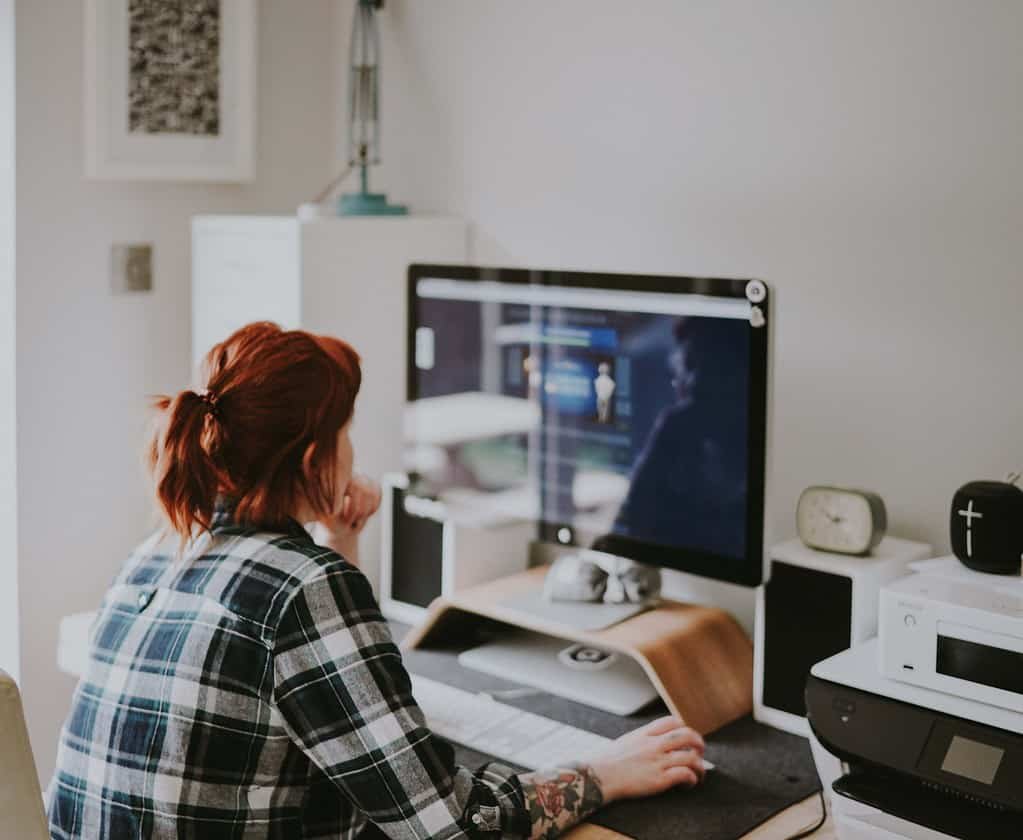How Working from Home Can Impact Your Sleep
Working from home has become increasingly common due to the ongoing COVID-19 pandemic. While this shift has allowed many people to continue working safely, it has also posed new challenges to our daily routines, including the potential impact on our sleep patterns. The intertwining of work and personal life brought about by remote work can make it more difficult to establish healthy boundaries, which in turn, can negatively affect sleep quality and overall well-being. Sleep science indicates that our bodies require consistent routines, adequate exposure to natural light, and a relaxing environment for restorative rest. Unfortunately, working from home can disrupt these factors, leading to poor sleep and reduced productivity. Factors such as irregular schedules, fewer opportunities for physical activity, and increased exposure to blue light emitted from electronic devices are just a few examples of how remote work can interfere with our sleep.
To tackle these challenges, it is essential to create an effective work-home environment and make conscious efforts to maintain physical and mental health and a strong support network. Employers and corporate cultures should also consider the implications of remote work on their employees’ well-being and adopt policies to promote a healthy work-life balance, especially during a pandemic.

Key Takeaways
- Remote work can disrupt sleep patterns, affecting well-being and productivity.
- Creating a supportive work-home environment is essential to maintain healthy sleep.
- Employers are crucial in promoting work-life balance and prioritising employees’ health.
The Science of Sleep
Understanding the Circadian Rhythm
The circadian rhythm, also known as the body clock, is a biological process that governs the sleep-wake cycle in humans. This natural, internal system spans around 24 hours and is primarily influenced by light and darkness in the environment. It is crucial in regulating various bodily functions like hormone release, body temperature, and, most importantly, sleep patterns. Working from home can significantly impact the circadian rhythm and, consequently, our sleep. Without a structured work routine, it becomes easy to overlook the importance of maintaining a consistent sleep-wake schedule. As our exposure to natural light might decrease when working from home, it can affect the synchronisation of our body clock, leading to sleep disruptions.
To maintain a healthy circadian rhythm while working remotely, here are some suggestions:
- Establish a consistent sleep-wake schedule: Go to bed and wake up simultaneously every day, even on weekends, to reinforce the body’s natural rhythm.
- Prioritise exposure to natural light: Ensure you spend time near windows or outdoors during the day to help regulate the body clock.
- Create a comfortable sleep environment: Keep your bedroom cool, dark, and quiet for better sleep.
- Limit exposure to blue light before bedtime: Electronic devices like smartphones, tablets, and computers can emit blue light that suppresses melatonin production and disrupts sleep. It is advised to minimise screen time before bed.
How Working from Home Can Affect Your Sleep
Working from home has become increasingly common, especially during the global Covid-19 pandemic. Despite its many benefits, this new work arrangement can impact your sleep in various ways. In this section, we’ll explore the factors affecting your sleep quality when working from home, such as stress, anxiety, and screen time.
Impact on Sleep Quality
Working from home can lead to disruptions in your daily routine, which may have a knock-on effect on your sleep. With no clear separation between work and personal life, it becomes easy to neglect important activities, such as exercise and relaxation. Reduced physical activity and low exposure to daylight can disrupt your body’s natural sleep-wake cycle, leading to poor sleep quality [1]. In addition, people who work remotely often experience less social interaction than those who work in an office environment, which can negatively impact sleep [2].
Role of Stress and Anxiety
The stress and anxiety that can come with adapting to a new work environment and the uncertainty of the pandemic can greatly impact your sleep. High-stress levels can make it difficult to fall asleep or maintain a restful night’s sleep. It’s essential to find effective ways to manage your stress levels, such as taking regular breaks, practising relaxation techniques, or seeking professional support if needed.
Effects of Screen Time
Increased screen time is another factor affecting your sleep when working from home. Many remote workers spend more time using electronic devices, such as laptops, tablets, and smartphones, which emit blue light. Exposure to blue light during the evening can interfere with the production of melatonin, a hormone that helps regulate sleep [3]. To mitigate the effects of blue light on your sleep, it’s advisable to limit screen time in the hours leading up to bedtime or use strategies such as blue light filtering apps and a regular sleep schedule.
Footnotes
- How Working From Home Can Impact On Your Sleep ↩
- How Has Our Sleep Changed While Working Remotely ↩
- Searching For Sleep Solutions When Working From Home ↩
Creating an Effective Work-Home Environment
Establishing Clear Boundaries
It is essential to establish clear boundaries between your work and personal life when working from home. One way to achieve this is by setting a consistent work schedule and sticking to it as much as possible. This will help you avoid working at all hours and ensure you have dedicated time to relax and unwind. Creating a designated workspace, separate from your living and sleeping areas, can also provide a clear separation between work and leisure time.
The Importance of a Well-Designed Bedroom
A well-designed bedroom plays a crucial role in maintaining a healthy sleep pattern. It is important to create a calming and soothing environment that promotes relaxation and sleep. Make sure your bedroom is clutter-free, with comfortable bedding and low lighting. It’s also important to regulate the temperature in your room, as a cool environment is typically optimal for sleeping. Taking these steps will help you establish a strong association between your bedroom and sleep, ensuring you get the rest you need.
Technology and Bedroom Environment
Technology can significantly impact your sleep quality. Electronic devices such as phones and laptops emit blue light, disrupting your natural sleep-wake cycle. To minimise this effect, it’s essential to create a technology-free zone in your bedroom. Remove all electronic devices at least an hour before bedtime and establish a calming bedtime routine, like reading or bathing. This practice will help you disconnect from work and prepare your body and mind for restorative sleep.
Maintaining Physical and Mental Health
Benefits of Routine Exercise
Incorporating regular exercise into your work-from-home routine can have a significant impact on both physical and mental health. Engaging in physical activity helps to improve sleep quality and reduce stress levels. According to the NHS, taking short walks, runs, or cycles, especially outdoors, can boost mood and reduce anxiety. Establishing an exercise routine tailored to your preferences – be it yoga, stretching, or a HIIT workout – will not only support mental health but also enhance focus and productivity.
Managing Depression and Mental Health
Working remotely can sometimes exacerbate feelings of isolation and loneliness, contributing to depression. To mitigate the impact, it is essential to manage one’s mental health proactively. Ensure you have a dedicated and comfortable workspace to minimise distractions and maintain a clear work-life balance. Connecting with colleagues, friends, and family is crucial for fostering social bonds and preventing isolation. Mind offers additional suggestions and resources for better mental health management while working from home.
Reducing Burnout and Managing Workload
Working from home may blur the boundaries between personal and professional life, increasing the risk of burnout. To prevent this, it’s essential to establish clear boundaries between work and leisure time. Consider incorporating time management techniques such as the Pomodoro Technique or dividing tasks into smaller, more manageable portions. Taking breaks when needed and allocating time for leisure activities will prevent overworking and increase overall job satisfaction. Furthermore, communicating regularly with your team and sharing concerns or struggles with workload distribution can contribute towards a healthier work-from-home environment.
The Role of Employers and Corporate Culture
A crucial element in the work-from-home experience is the role of employers and the corporate culture they create. As organisations adapt to remote working arrangements, they must reassess their traditional approaches to ensure employees can maintain a healthy work-life balance and prioritise self-care amidst the new normal.
Promoting Balance and Self-Care
One way employers can support their employees’ well-being is by encouraging work-life balance and promoting self-care activities. Companies with a supportive organisational culture actively take steps to reduce work-related stress, provide flexible working arrangements, and set clear boundaries between work and personal time.
Here are a few strategies employers can adopt to encourage a positive work-life balance:
- Set clear expectations: Establishing ground rules and setting reasonable work hours can help employees manage their workload and reduce the risk of burnout. Ensure that employees understand their daily tasks and deadlines and communicate any changes promptly.
- Encouraging regular breaks throughout the workday can help improve focus and reduce the risk of stress-related health issues. Employers can encourage this by scheduling regular check-ins and reminding employees to take breaks when necessary.
- Offer flexible schedules: Allowing employees to work during their most productive hours, or providing a certain degree of flexibility in their schedules, can boost their productivity and help them achieve a healthy work-life balance.
- Emphasise mental health support: Providing access to mental health resources and fostering a culture that recognises the importance of self-care is essential. Employers can arrange workshops, support groups, or counselling services for employees to use when necessary.
When companies create a corporate culture that focuses on employees’ well-being, they are more likely to see an increase in overall job satisfaction and productivity. Prioritising a healthy work-life balance and self-care practices is vital in the work-from-home environment and should be an integral part of every organisation’s strategy.
Special Considerations During a Pandemic
The Effect of Covid-19 on Remote Working
The Covid-19 pandemic has dramatically changed how people work, with an increasing number of individuals switching to remote work. This new work arrangement has brought about several challenges, particularly in sleep health.
During the pandemic, many people experienced disrupted sleep patterns due to the sudden shift to remote work. Factors like altered daily routines, lack of work-life boundaries, and increased screen time have contributed to sleep issues, such as insomnia1. A study from the University of Southampton revealed that the number of people experiencing insomnia in the UK rose significantly, from one in six to one in four [1]. Additionally, the pandemic has been associated with mental health concerns, such as anxiety, stress, and depression, all of which can negatively impact sleep quality [2].
Remote workers need to acknowledge these challenges and take steps to improve their sleep hygiene. One effective strategy is to create a comfortable and dedicated workspace at home [3]. Ideally, this area should be separate from the bedroom to distinguish between work and relaxation clearly. If sharing a living space with others, consider using a curtain or room divider to establish boundaries.
Footnotes
- The ‘coronasomnia’ phenomenon keeping you from getting sleep ↩
- Working from home during the COVID‐19 pandemic, its effects on health ↩
- Avoid Your Bedroom as Your Remote Workspace ↩
Frequently Asked Questions
How does remote work influence sleep patterns?
Remote work can significantly impact our sleep patterns. One reason is the lack of a clear boundary between work and home life, leading to difficulty in unwinding and transitioning from work to relaxation. Additionally, working in the same space where we sleep can confuse our brain’s associations with sleep and relaxation, leading to disrupted sleep patterns.
What are some tips for better sleep while working from home?
To improve sleep while working from home, it’s essential to set boundaries and stick to clear working hours. This helps maintain a balanced lifestyle, giving you time to unwind before bed. Additionally, designate a dedicated workspace separate from your bedroom, if possible. Incorporating regular exercise and a healthy diet can also improve sleep and productivity. Finally, practising self-care and relaxation techniques can help mitigate stress and improve sleep quality.
Can working from home cause insomnia?
Yes, working from home can contribute to insomnia or exacerbate existing sleep issues. Some factors that may trigger sleep problems for remote workers include stress, lack of a clear distinction between work and home life, and spending excessive time in the bedroom. It is crucial to establish boundaries and create a healthy sleep environment to minimize the risk of developing insomnia.
How does waking up late impact remote work?
Waking up late can affect remote work negatively. It can increase stress levels as one tries to catch up on tasks and meet deadlines. Waking up late may also disrupt the body’s natural sleep patterns, making it more challenging to fall asleep at night and maintain a regular sleep schedule. Adjusting to a consistent wake-up time can help maintain productivity and improve sleep while working from home.
How do long work hours affect sleep quality?
Long work hours can have a detrimental impact on sleep quality. Overworking can cause increased stress, mental fatigue, and reduced time for relaxation and sleep. Insufficient sleep can further reduce productivity and increase the likelihood of errors and accidents. It’s essential to balance work hours and leisure time to ensure adequate sleep and overall well-being.
What are the main sleep-related challenges faced by remote workers?
The primary sleep-related challenges faced by remote workers include:
- Difficulty in establishing a healthy work-life balance.
- Stress, anxiety, and depression are caused by isolation and lack of social interaction.
- Poor sleep hygiene as remote workers may work from their bedroom or bed, disrupting their sleep environment.
Addressing these challenges involves creating personal boundaries, maintaining a separate workspace, incorporating regular exercise and relaxation techniques, and staying connected with a support network.



